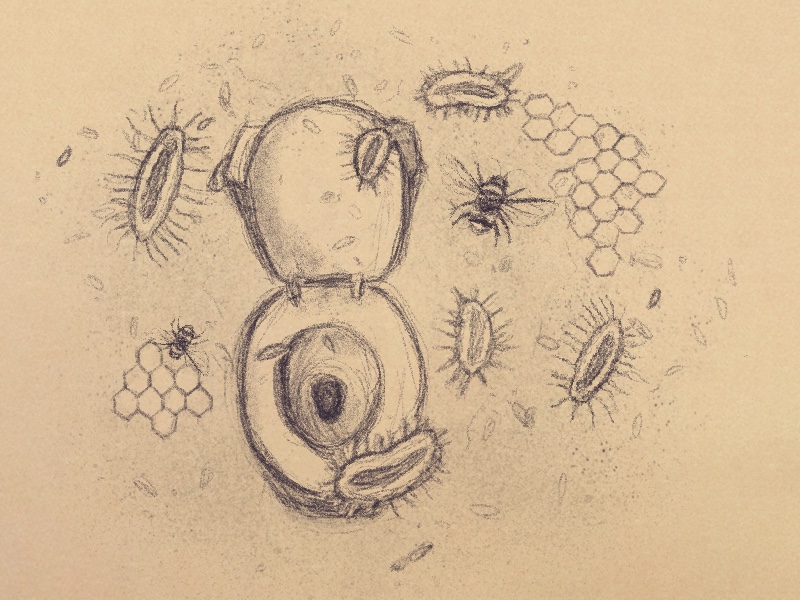“Our interactions with our microbiome shape who we are and how we live”, Dr. Danielle Wilde told the audience during her Food Matters and Materialities Conference presentation. Wilde is an associate professor at the University of Southern Denmark. At the Conference, she shared three related research projects that deal with human microbe relations. By sharing these projects and her experience, she challenged the audience to think about the “food we eat, the food we (co)produce and the food we are”.

Credits: Illustration by Kit Chokly.
The first project Wilde shared was “the SHIT project”. For this project, a group of people documented everything they put into their bodies and everything that came out. Some participants were healthy, and others were sick or had a problem with their gut. Wilde and the project participants found that engaging directly with their excretions helps lessen feelings of shame. In addition, by sharing with others, they could share the vulnerability involved in this “radically open” process. Radical openness is something that Wilde practices across her research. She highlighted that “radically envisioning alternatives help us rethink what we’re doing today so we can step outside the norms that constrain us”.
In another project, titled “Honey, shit, soil and dert”, ‘dert’ being the phonetic spelling of dirt, Wilde designed a workshop built around questions related to beekeeping, stewardship, and microbiomes. From honey to feces to dirt, the workshop invited participants to “feel, taste, smell, and imagine their way towards new relationships with the food we eat and the creatures that shape our tastes; to reconnect to the soil around a distributed table”. The workshop participants made models of their feces out of various foods they had around and opened up through conversations about health practices, feces, and personal gut health.
Finally, the third project presented by Wilde included a workshop with the Danish Colitis and Crohn’s Patient Association. Participants drew and then built their gut using food-based paints and simple materials. They then modeled their feces out of cake and superfoods. By participating in this provocative activity, the participants were able to find levity and could begin to reflect with one another about what had happened as they ate their cakes.
For Wilde, this allowed the participants to “deeply explore one of their most intimate acts and have conversations with family members and others about things they have never before discussed”. She was surprised to learn that they rarely talk about their illnesses at other events held by the Association. This project has led Wilde and her team to build kits for a clinical study on irritable bowel syndrome (IBS). Patients involved in the study will use the self-experimentation kits at home. Wilde says that “functional medicine tries to fix what’s wrong with us, but it’s important to deepen our understanding of things in ways that can help us to shift our practices and attitudes that determine the choices we make”. By promoting new forms of engagement with our gut, Wilde said that she is “ultimately trying to understand how we can collaborate with microorganisms”.
Dr. Wilde’s participatory, experimental approach to research can help both healthy and sick people engage with their gut’s in a transgressive but meaningful way. As her interconnected research projects demonstrate, stepping out of our comfort zones provokes important conversations about topics that are typically “taboo”. As a result, her work not only brings people closer to their microbiome but also to others as well.